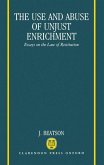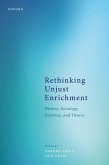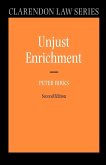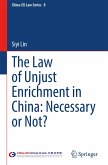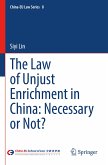This book challenges the orthodox approach to the analysis of unjust enrichment, developed by Peter Birks and adopted by the House of Lords and Supreme Court in a series of later decisions. It does so in 3 ways. First, the book argues that the Birksian model fails to fit some typical situations unless the language of the formula is stretched to the point of being artificial. For example, "enrichment" is now just a term of art. Secondly, the Birksian model fails to provide a normative justification for the courts awarding recovery in unjust enrichment claims. For example, it offers no explanation on the basis on which an "unjust factor" should be categorised as "unjust". Thirdly, and most fundamentally, the book rejects the Birksian approach of adopting a top-down academic theory of unjust enrichment and ignoring the authorities which pre-date its adoption by the House of Lords. Instead, the book seeks to arrive at a theoretical understanding of unjust enrichment by tracing the historical development of this area of the law through the authorities and commentaries from the 18th century onwards, and analysing the reasoning of the judges and scholars.
Hinweis: Dieser Artikel kann nur an eine deutsche Lieferadresse ausgeliefert werden.
Hinweis: Dieser Artikel kann nur an eine deutsche Lieferadresse ausgeliefert werden.


